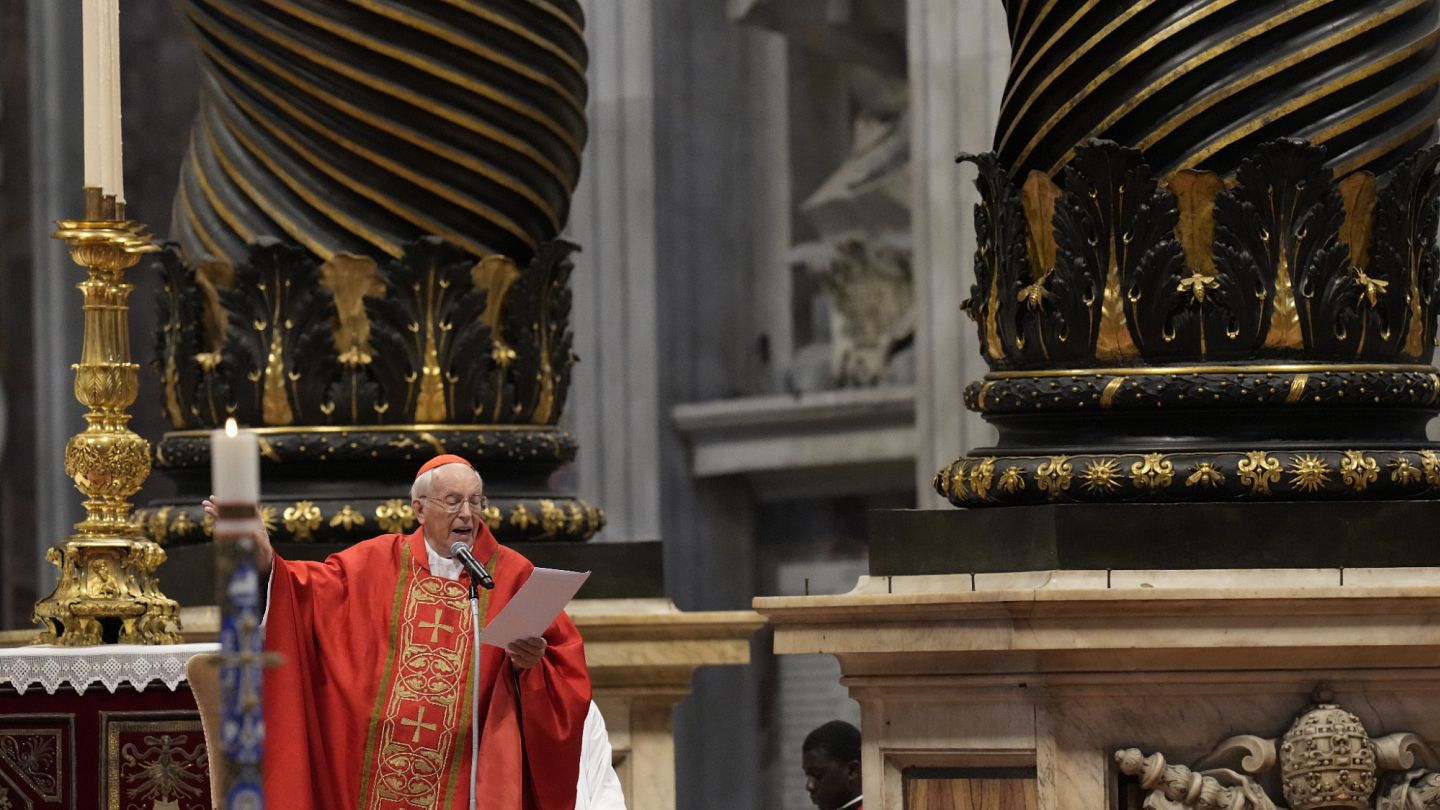Next pope must be able to lead Church through difficult time, Cardinal Re says pre-conclave
Giovanni Battista Re, 91, made the comment during pre-conclave mass on Wednesday in St Peter's Basilica.
The cardinals choosing the next pope should select the person best suited to lead the church through a “difficult and complex” time, a senior Vatican official has said. Cardinal Giovanni Battista Re, who is the dean of the College of Cardinals, made the comment while leading morning Mass in St Peter’s Basilica on Wednesday, just hours before the start of the conclave. The 91-year-old Re, who cannot vote in the papal election because he is over 80, urged his peers to set aside their personal interests to find a leader who can awaken people’s consciences and unify the church. “This is a strong call to maintain the unity of the church ... a unity that does not mean uniformity, but a firm and profound communion in diversity,” said Re, who led Pope Francis’ funeral last month. By mid-afternoon on Wednesday, 133 cardinals had shut themselves up in the Sistine Chapel. They will not have contact with the outside world until they find a new leader for the church’s 1.4 billion-strong flock. Since the late Pope Francis’ death on Easter Monday, speculation has grown about who might be chosen as his successor. Potential contenders include Pietro Parolin, Luis Antonio Tagle, Fridolin Ambongo Besungu and Péter Erdő. Parolin, a 70-year-old Italian who is the Vatican’s secretary of state, and Tagle, a 67-year-old former archbishop of Manila, are seen as candidates who could continue Pope Francis’ legacy. Meanwhile, Besungu, a 65-year-old Congolese cardinal who leads the church’s largest archdiocese in Africa, and Erdő, a 72-year-old Hungarian theologian and scholar, are deemed to be two of the leading conservative contenders. As Pope Francis named 108 of the 133 cardinals who will be voting in the conclave, it is likely that the eventual winner could be someone aligned with his policies. The late pontiff increased the geographic spread of the College of the Cardinals, with new appointees coming from countries that had never been represented before, including Mongolia and Tonga. The next pope will be the person who gains at least 89 ballots — or a two-thirds majority — in the conclave. For much of the last century, it has taken between three and 14 ballots to choose the new pope. Pope Francis was elected on the fifth ballot in 2013.


